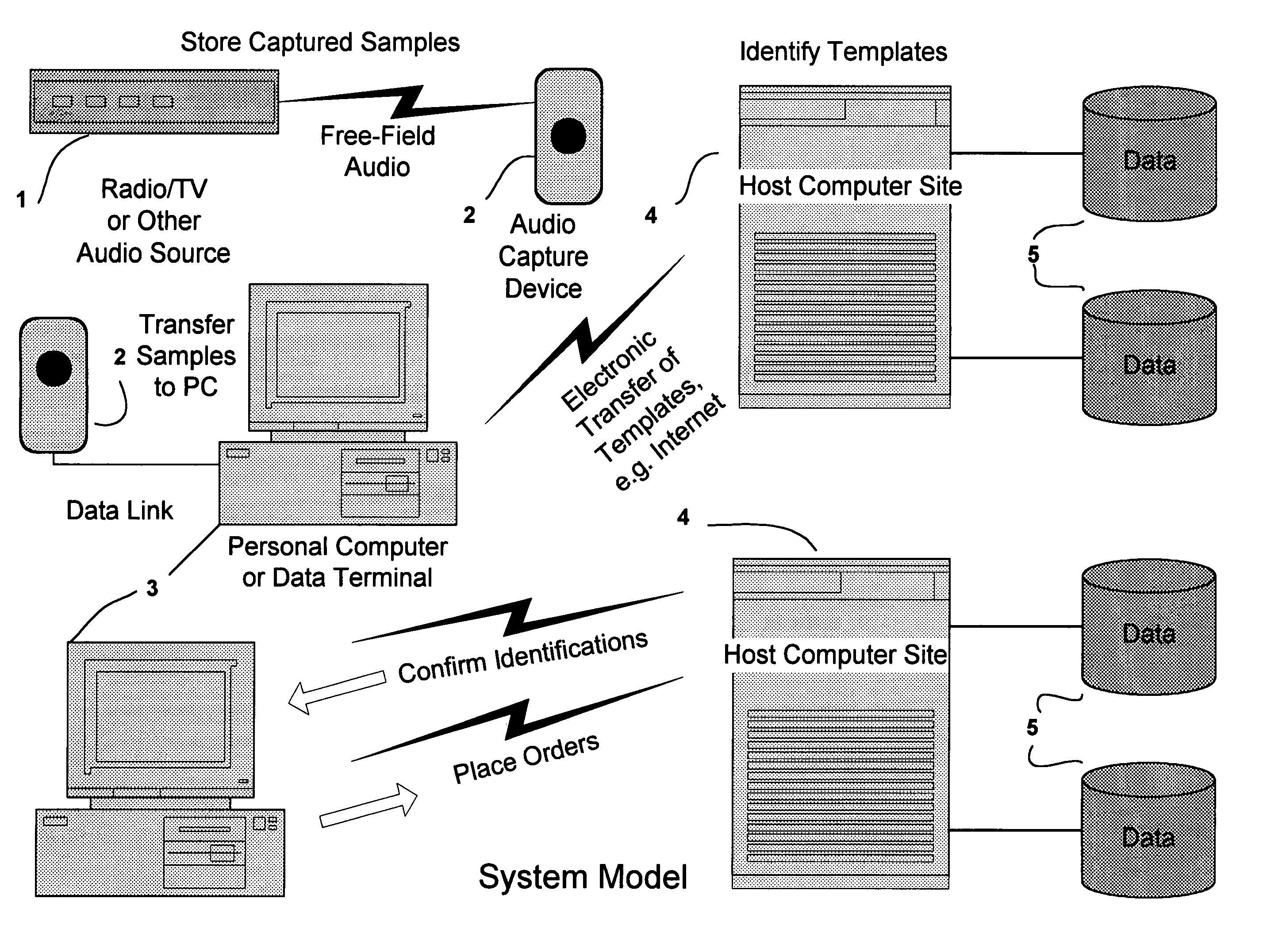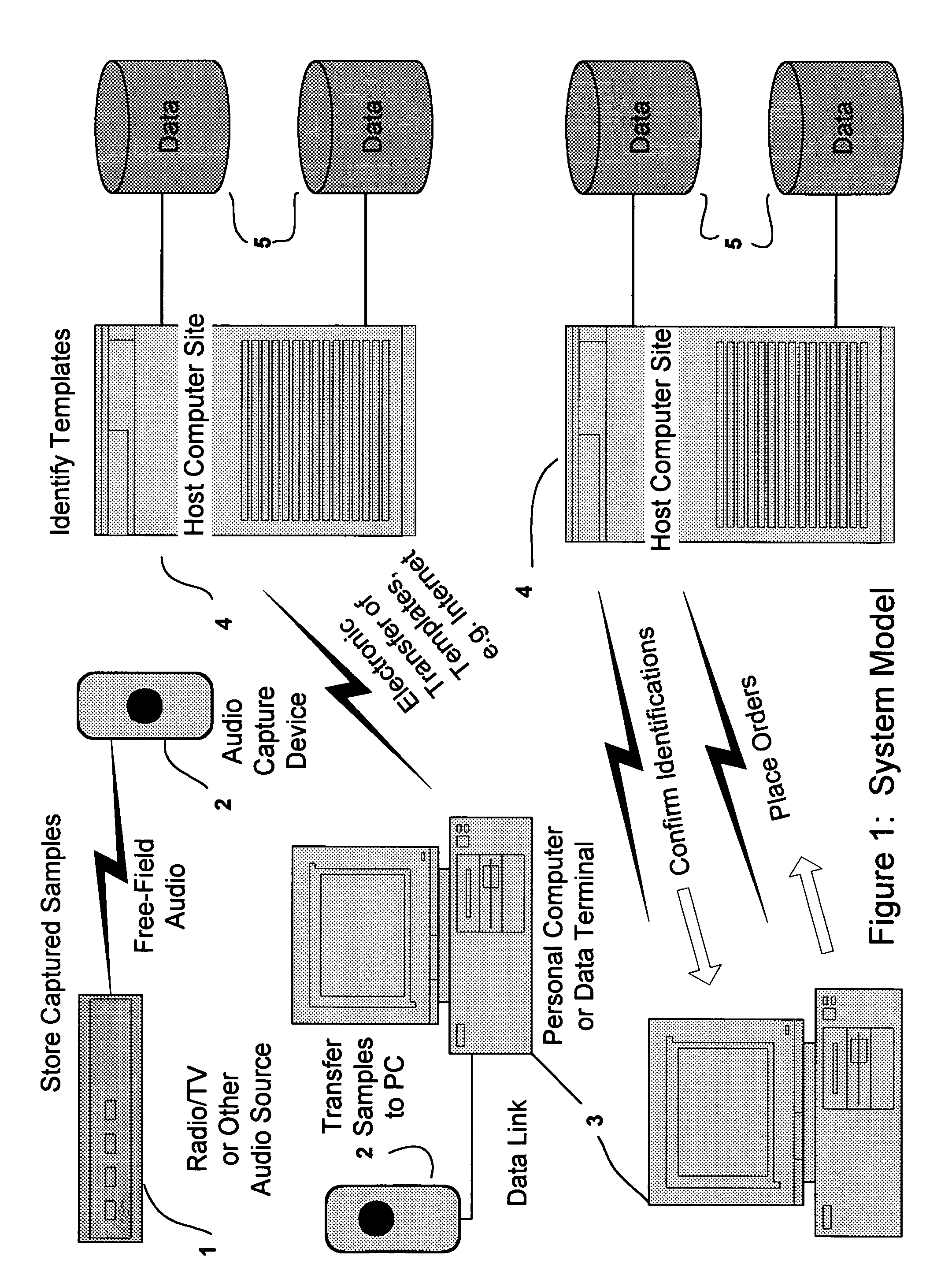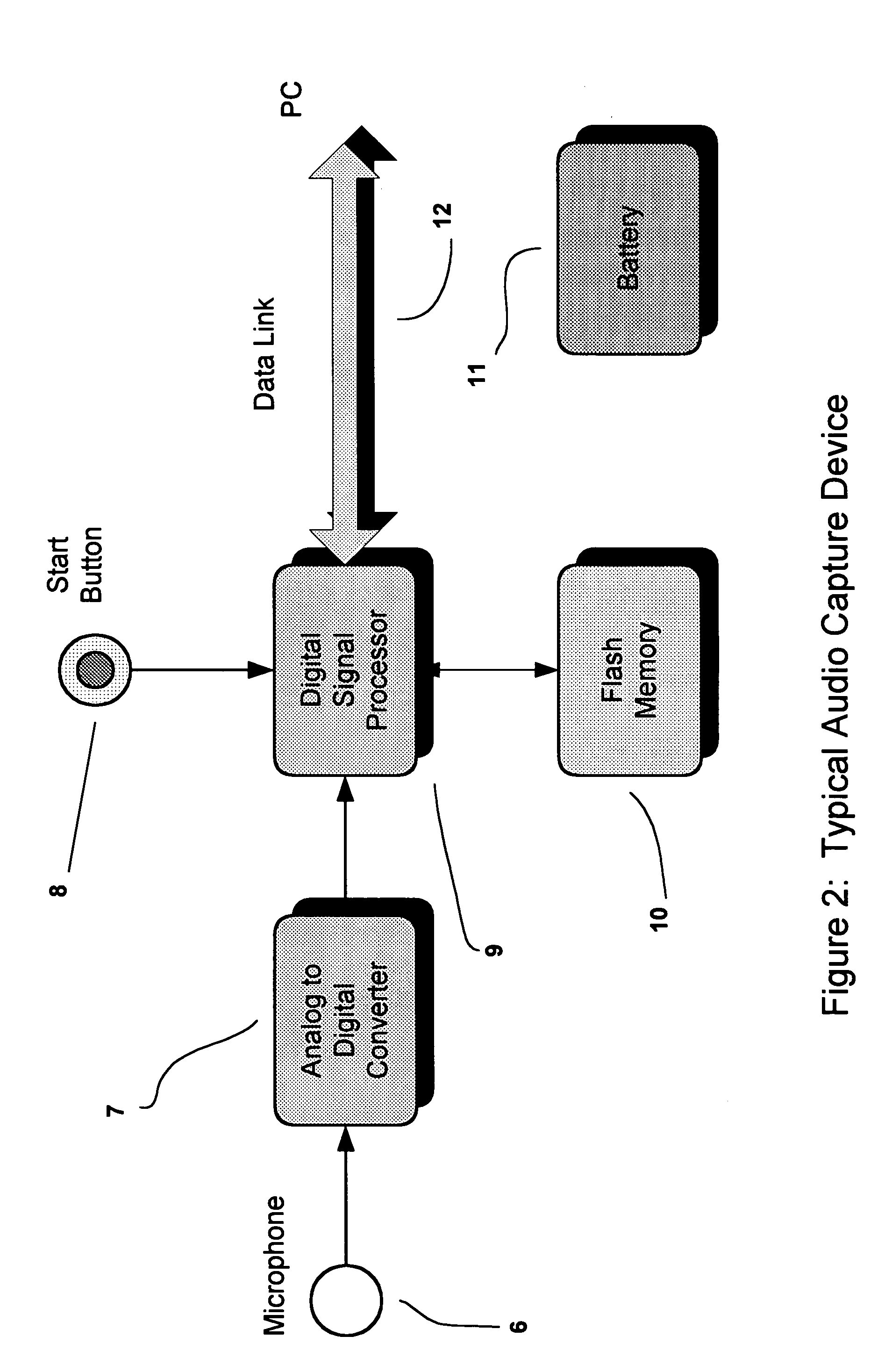Audio identification system and method
a technology of identification system and audio, applied in the field of audio identification system and method, can solve the problems of increasing difficulty, affecting the accuracy of audio identification, and the need to acquire and maintain logs from a potentially large number of stations, so as to facilitate the interactive acceptance and processing of orders and high accuracy
- Summary
- Abstract
- Description
- Claims
- Application Information
AI Technical Summary
Benefits of technology
Problems solved by technology
Method used
Image
Examples
Embodiment Construction
1. Overview
[0035]The preferred embodiment is directed to a technology and system for audio sample capture and the automatic identification of signals using a method known as passive pattern recognition. As contrasted with active signal recognition technology, which injects identification codes into the recorded material, the passive approach uses characteristics or features of the recording itself to distinguish it from other possible audio inputs. While both methods have their advantages, passive approaches are most appropriate for audio sample identification. There are several reasons for this. First, coded identification signals that are added to the audio material in active systems are frequently detectable by a discerning ear. When the code injection level is reduced to the point that it is inaudible, the reliability of the code recovery suffers. Further, the injected codes are often destroyed by broadcast processing or signal processing necessary to distribute audio on compute...
PUM
 Login to View More
Login to View More Abstract
Description
Claims
Application Information
 Login to View More
Login to View More - R&D
- Intellectual Property
- Life Sciences
- Materials
- Tech Scout
- Unparalleled Data Quality
- Higher Quality Content
- 60% Fewer Hallucinations
Browse by: Latest US Patents, China's latest patents, Technical Efficacy Thesaurus, Application Domain, Technology Topic, Popular Technical Reports.
© 2025 PatSnap. All rights reserved.Legal|Privacy policy|Modern Slavery Act Transparency Statement|Sitemap|About US| Contact US: help@patsnap.com



